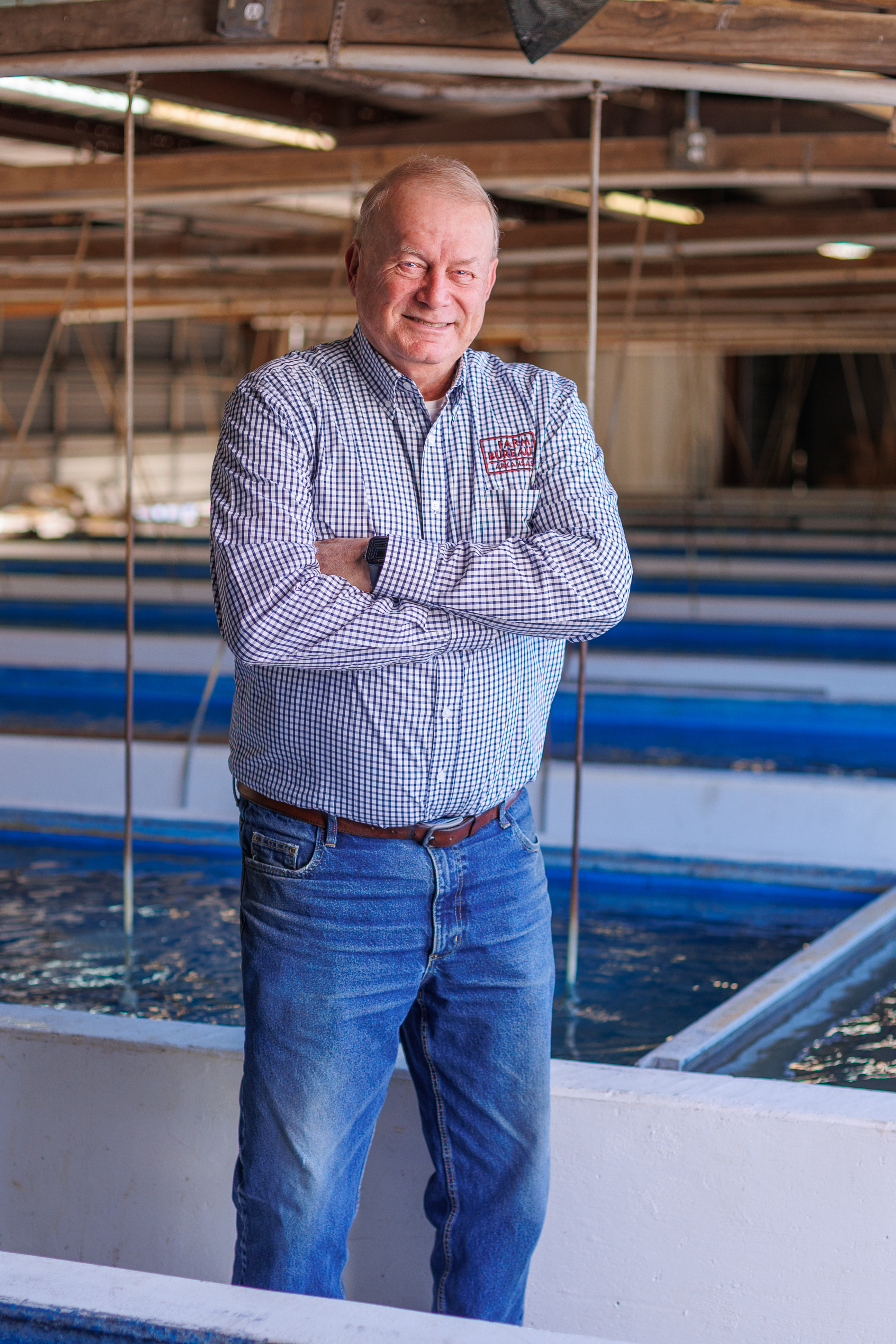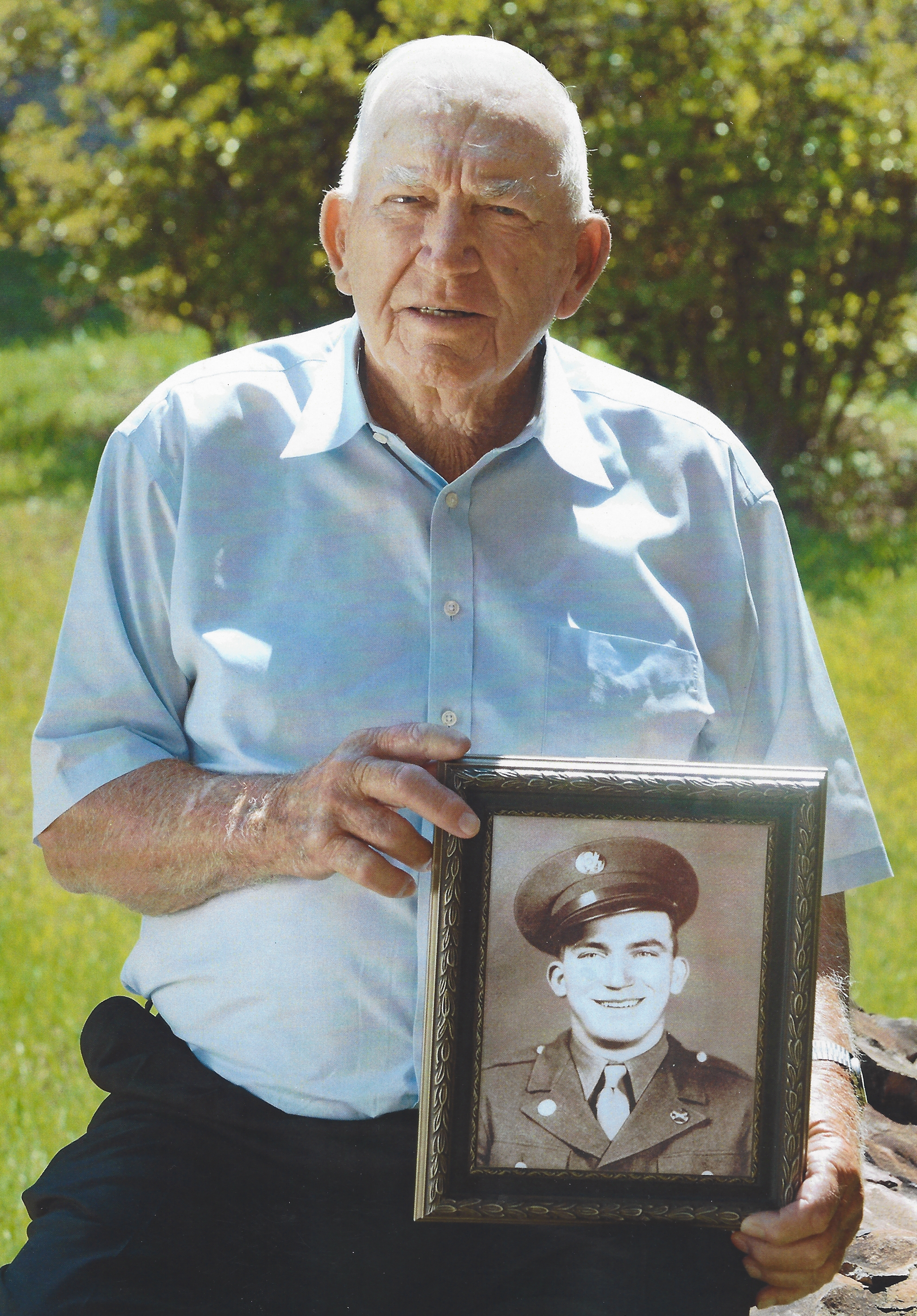Arkansas Agriculture Hall of Fame to Add 6
Arkansas Agriculture Hall of Fame To Add 6
LITTLE ROCK, Ark., Jan. 6 – Six inductees will be added to the Arkansas Agriculture Hall of Fame, reflective of industry-changing work in aquaculture, forestry, rice, poultry and cattle as well as the University of Arkansas Division of Agriculture.
The six inductees that make up Class XXXVII are:
- Aubrey Blackmon of Houston, a founding member of Perry County Cattlemen’s Association in 1970 and recipient of the Arkansas Cattlemen’s Association lifetime service achievement award in 2012;
- Carl Brothers of Stuttgart, who spent 53 years with Riceland Foods, retiring as senior vice president and chief operating officer and whose leadership was instrumental in passage of the 1985 farm bill, also known as the Food Security Act of 1985;
- Chuck Culver of Fayetteville, retired University of Arkansas Division of Agriculture executive who helped secure more than $600 million in public and private funding for agriculture research and extension projects;
- Mike Freeze of Little Rock, co-owner and operator of Keo Fish Farms — America’s largest producer of hybrid striped bass fry and fingerlings — who helped Arkansas become one of the top three states in aquaculture production;
- the late Jack Reaper of Albion, who was a prisoner of war in a German concentration camp before starting with a 24-acre farm in White County and growing it into a model farm that included poultry, cattle and row crops; and
- Frank Wilson of Rison, who began planting pine trees with his dad more than 70 years ago and started Wilson Brothers Lumber Company in 1972, followed by several logging companies and other timber industry enterprises offering more than 100 jobs in rural Cleveland County.
Class XXXVII induction ceremonies are scheduled for 11:30 a.m. March 28 in the Wally Allen Ballroom at the Statehouse Convention Center in Little Rock. Contact Cindra Jones at 501-228-1609 for ticket information or click here to purchase tickets online.
Since the hall of fame’s first class in 1987, a total of 192 men and women have been inducted for significant contributions to Arkansas’ largest industry and the economic impact of the industry.
“What an amazing group of farmers and those who help our farmers make agriculture Arkansas’ No. 1 business sector,” said Arkansas Agriculture Hall of Fame Chair Debbie Moreland of Roland. “Agriculture is such a critical cultural and economic part of Arkansas. It is what binds so much of our state together.
“These we will induct have made a national impact on rice, soybeans, cattle, cotton, timber, aquaculture and have helped steer the academic and research efforts that underpin Arkansas agriculture.
“I say this often to my friends, and it bears repeating; agriculture is one of the great success stories of our state. The Arkansas Agriculture Hall of Fame is pleased to bring recognition to these individuals who have impacted our state’s largest industry in such a positive way.”
Brief biographies for each inductee are attached.
The Arkansas Agriculture Hall of Fame was originated by Paul Harvel, C.R. Sawrie and the Greater Little Rock Chamber of Commerce in 1987. The program seeks to build public awareness of agriculture; and to honor/recognize past and current leaders who have given selflessly to the farm industry, their communities and to economic development in the state.

Aubrey Blackmon
Aubrey Blackmon grew Blackmon Farms in Houston from one cow and one calf to more than 350 momma cows at its peak while serving the cattle industry at the state and national levels.
Blackmon, whose dad homesteaded in Jessieville, bought land in Perry County in 1968 and began with one cow and a calf, but the cow died, and the family decided to slaughter the calf. Blackmon bounced back, rebuilding his operation with improved pasture and easier-to-maintain cattle. Along with raising cattle, he served the industry in numerous capacities.
Blackmon, who has been involved in the Arkansas Cattlemen's Association (ACA), for over 50 years, is referred to as the cattlemen's "historian." He was a founding member of Perry County Cattlemen’s Association in 1970 before becoming ACA state president in 2005 and earning its lifetime service achievement award in 2012. Recognizing his unique legacy, in 2023 the ACA renamed the honor the “Aubrey Blackmon Lifetime Service Achievement Award.”
As president of the ACA, Blackmon steered crucial initiatives, including support in 2005 for the Arkansas Department of Agriculture, eliminating sales tax on reproductive livestock equipment and ensuring a safe reopening for cattle trade at the U.S.-Canada border.
Blackmon also served three terms on the Arkansas Beef Council beginning in 2008. He was twice appointed by USDA to the Cattlemen’s Beef Promotion Board and served from 2021-23 on the National Cattlemen’s Beef Association Federation board.
Blackmon attended high school in Jessieville. He credits most of his knowledge gained from his time on the farm and the highway construction business he entered after high school.

Carl Brothers
Carl Brothers’ influence on the United States rice industry and other commodities was significant during his 53-year career at Riceland Foods, Inc., in Stuttgart.
He worked his way up from the night shift as an electric sorter operator without a college degree in 1965 to Riceland’s administrative offices, where he marketed Arkansas rice around the world. Riceland rose to the world’s largest rice miller and marketer during his tenure. Brothers retired from Riceland in 2018.
In 2009, Brothers was recognized with the USA Rice Federation Lifetime Achievement Award for major accomplishments benefiting the industry.
Arkansas leads America in rice production and Brothers contributed to the top ranking. The former senior vice president and chief operating officer’s leadership and expertise in the marketing loan programs for rice was instrumental in the 1985 farm bill, also known as the Food Security Act of 1985.
Brothers’ work during Ronald Reagan’s presidency created USDA marketing loans, allowing farmers and cooperatives to place rice into a government loan program and draw the initial loan value while marketing their crops. His work crafting the bill allowed farmers and co-ops, holding the loans, to repay at the lower of the loan value or the current world market price for rice.
The 1964 Little Rock Central graduate chaired the USA Rice Federation from 1996-1998 and Rice Miller’s Association in 1988 and 1997. He was also a member of the United States Department of Agriculture Policy Advisory and Agriculture Technical Advisory committees.

Chuck Culver
Chuck Culver cultivated and facilitated key relationships, establishing legal and administrative infrastructures while obtaining funding via private development and federal advocacy. He helped secure more than $600 million in public and private funding for agriculture research and extension projects during his tenure with the University of Arkansas System Division of Agriculture (UADA), including federal funding for 25 major research and extension projects for the Division of Agriculture, UA-Fayetteville, UA-Pine Bluff, UA-Monticello and Arkansas State University. Culver also led fundraising efforts for the establishment of 30 agricultural research and extension facilities and centers across Arkansas.
Culver helped champion the major increase of the USDA Agricultural Research Service presence in Arkansas, including construction of the Dale Bumpers National Rice Research Center laboratory building and the establishment of two national centers: the Arkansas Children’s Nutrition Center in Little Rock and the National Agricultural Law Center in Fayetteville. Culver also drafted the federal Lower Mississippi Delta Development Act that led to the creation of the Delta Regional Authority.
Culver retired in 2024 after 34 years with the Division of Agriculture, having served as director of external relations and interim vice president of agriculture (2021-22).
Born in Greenville, Miss., Culver earned a bachelor’s degree from Louisiana State University, as well as a juris doctorate and a Master of Laws in Agricultural Law from the University of Arkansas, Fayetteville. He joined the UADA in 1990. Culver has previously served as counsel for agriculture and rural development for the U.S. Senate Committee on Small Business and as a legislative assistant for agriculture in the office of U.S. Senator Dale Bumpers.
Culver serves on the board of directors of AgHeritage FCS and Butterfield Trail Village, a church-established non-profit life care community in Fayetteville.

Mike Freeze
Mike Freeze operates the largest hybrid striped bass hatchery in the world at the Keo Fish Farm, which spawns more than 100 million hybrid striped bass annually and is one of the top three producers of genetically engineered triploid grass carp in the United States.
Freeze successfully campaigned to create a farmer-led nonprofit trade association advocating for U.S. aquaculture in 1989. He then served as president of the National Aquaculture Association (NAA) during its formative years (1990-92) and again from 2011-16. He still serves on the NAA Board of Directors as a President Emeritus and on key committees driving the association’s work. In 2019, the NAA honored Freeze with its highest recognition — the Joseph P. McCraren Distinguished Lifetime Contributions Award.
Freeze has advocated for fish farmers through written testimony to the U.S. House of Representatives Agriculture Committee and as Arkansas' chapter president for the American Fisheries Society. He has served on the Arkansas Farm Bureau board for more than a decade, including the past six years as its vice president.
Born in Pine Bluff, Freeze earned a bachelor’s degree in fisheries and wildlife management at Arkansas Tech University in 1975, while working through college as a fish researcher at Lake Dardanelle. He completed a master’s degree in biology from Murray State University in 1977.
Freeze worked as a fisheries biologist for the Arkansas Game and Fish Commission (AGFC) and was later appointed by Governor Mike Huckabee as a commissioner to the AGFC and became the first former employee to ever serve as chairman of the commission.
In 2004, the Freezes were named the Lonoke County Farm Family of the Year.

Jack Reaper
Jack Reaper was a World War II soldier who was captured by the Germans and ended his military time as a prisoner of war. He was determined to stay alive and return to White County as a farmer. His agricultural beginnings were humble, even by post-war standards. He started with 24 acres of corn and cotton which grew under his dedication and stewardship to more than 1,500 acres. It became one of the most diversified and profitable farms in the state.
Reaper made a science out of farming and changed in 1963 from broilers to a commercial laying operation, including a 30-case per hour washer and grader machine. He also contracted with other county farmers to produce eggs that were marketed in Arkansas and the northeastern United States. At its peak, the operation boasted more than 250,000 layers before returning to the broiler business and producing more than 650,000 annually.
The work earned Arkansas Family of the Year honors in 1964. The Arkansas Democrat referred to Reaper’s farm as one of “progress and steady improvement.”
He often said he wanted to “make a good farm better,” and Reaper’s farm became more multi-faceted. Beef cattle were added, with more than 400 head of mixed commercial cows. In 1978, Reaper was one of the first farmers in the area to precision level land and build 60 acres of reservoirs and a tailwater recovery system. From 1982-2012 he operated a 600-head Holstein-replacement heifer operation for dairies.
Born in Hickory Flat in 1925, Reaper graduated from Pleasant Plains High School. He passed away on Dec. 7, 2016, having built a diverse enterprise, finding solutions to farming problems in the Ozark Mountain foothills.

Frank Wilson
Frank Wilson founded Wilson Brothers Lumber in 1982, along with his brothers Grady and Jewel, and grew it into an industry giant over the next four decades.
Wilson started planting trees before he was 10 years old with his dad in Cleveland County. He cut pulpwood with a bow saw as a teen before earning a McCullough Chainsaw scholarship he used to complete a forestry degree in 1966 at Arkansas A&M (now UA-Monticello). Wilson worked for a wood dealer to International Paper and joined Weyerhaeuser before building a weekend sawmill business in 1972 at Rison. A decade later, the Wilson Brothers Lumber Company became a full-time family operation offering rural Cleveland County much-needed jobs over the past 40 years.
Wilson’s entrepreneurial spirit created Tri-W Logging in 1985 and then A&W Logging, River Ridge Equipment, Cleveland County Auto Parts and 5-Star Machine Shop. Wilson Brothers Lumber constructed a new sawmill in 2017, increasing its annual production to 20 million board feet of hardwood railroad ties and lumber. Wilson also owns individually, and as a partner with Frank & Grady, LLLP, more than 17,000 acres of timberland in south Arkansas.
He developed a software accounting program called “Timber Tract” in 1999 to assist producers in multiple states, and later the “Land Tract” and “Equipment Tract” programs to aid landowners with forest management and financial records.
The Cleveland County Hospital, the Rural Water Users Association and the Bank of Rison benefited from Wilson’s leadership on their boards.
His Log-A-Load for Kids effort, coordinated by the Arkansas Forestry Association, has raised $11 million for Arkansas Children’s Hospital. Also, what began as a Christmas meal for employees in the 1980s, has turned into an annual community event that draws more than a thousand people annually for the Wilson Family BBQ.
Arkansas Farm Bureau, the Electric Cooperatives of Arkansas and Farm Credit Associations of Arkansas sponsor the program. The Arkansas Agriculture Department, Arkansas Department of Career Education, the Arkansas Press Association, the University of Arkansas Division of Agriculture, USDA’s Farm Service Agency, Natural Resources Conservation Service and Rural Development provide additional program support.
Arkansas Farm Bureau is a nonprofit, private advocacy organization of more than 180,000 families throughout the state working to improve farm and rural life.
# # #
Steve Eddington
(501) 228-1383
steve.eddington@arfb.com
Jason Brown
(501) 891-1475
jason.brown@arfb.com


